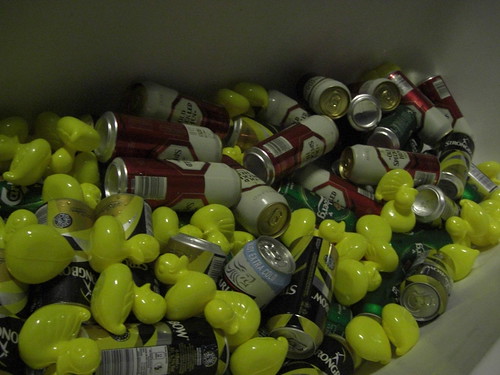It’s now just over a year since I went freelance, so I thought i’d share my experiences. First of all i’ll recap why I decided to make the move in the first place – mainly because of a business venture opportunity (olivewood – a web applications company, with products for servicing e-commerce and e-procurement), but also because I liked the idea of trying freelance full time, having been “moonlancing” for some time in addition to my day web developer job.
Since I made the move, I’ve been wearing two hats – that of freelance web monkey (or front end web developer) and that of Technical Director of Olivewood Data Technologies. The idea is that I would pay the bills by working short contracts as a freelancer, leaving spare time to work on web applications for Olivewood to sell. From day one it went straight off track! In addition to a few days a week working as a freelance resource for various web design agencies, I was offered a number of larger projects, which I took on under the Olivewood banner. After only a few weeks in I was juggling these larger projects with the on-site freelance work and soon had to start declining the on-site work, to make time for the larger projects.
Even dedicating all my time to the larger projects I was struggling so started to employ freelancers myself to delegate the workload. For a while this worked out, and it looked for a while like Olivewood might itself become a web design agency, using freelancers where needed, and starting to look into permanent employees. Some of the projects went really well, but it was getting difficult to manage the projects and find time to do any actual coding myself. So before I knew it I had become a project manager, albeit one who still tried to code and fulfill every other role in a snowballing company.
Meanwhile, very little progress was being made with the Olivewood products, so I was soon completely losing site of my original goals. I was also having other issues with finding and managing resources. I think one of the reasons I was offered so many projects in the first place is that I have a very diverse web development skillset (nb. i’ve started to refer to this as “swiss army knife” rather than the more negative “jack of all trades”!), so I ended up with projects spanning plone, front end web build, php, drupal, asp and asp.net. Finding local, available, freelancers with a similar skillset isn’t easy, and the time it takes to brief and manage remote freelancers made it extremely difficult to turn projects around on time and with a profit. Even so, it was still working, albeit only with me working most evenings and weekends – something I wanted to get away from by going full-time self employed.
Then I met my nemesis – a project I vastly underestimated, with a tight deadline and a tighter budget. Deadlines were missed and all the budget was spent on additional resources. Out of pride/stubbornness/professional integrity/stupidity I carried on, starting to decline other work, and push back other ongoing projects to make time to get the project finished, working ridiculously long hours throughout, and surviving on the profits of previous successful projects. This was a painful lesson in being careful what I agree to take on. It also forced me to re-evaluate the direction I was going in, and was fundamental in me getting back on track with the original goals.
So here I am now one year in, older, greyer and hopefully a bit wiser and on the verge of clearing my backlog of work to start afresh with a goal of keeping a balance on the work I need to take on to pay the bills and finding time to work on my future business goals. I recently had to decline a project that would have kept me busy for another month or so, which was painful but necessary. Turning down work is difficult, but the experience of the last twelve months has shown me that it is vital to be realistic.
In summary, it’s been a mixed bag – i’ve really enjoyed the freedom and excitement of being freelance, but I haven’t enjoyed the extra project management/ resourcing/ admin needed to run my own show. I’ve also learned the hard way about biting off more than I can chew. I’m still positive about it all – I see the difficult aspects as vital learning experiences that I needed to go through to get onto the next stage of my adventure.









Thanks for buying the book. I hope you enjoy it. 🙂
I would probably read the chapters in order, or at least skim them in order. You’ll find it a bit hard to grasp some of the things chapter 8 otherwise. At least, I’d read chapters 3 and 5 first.
Cheers,
Martin
Martin Aspeli 2008-09-18 22:22:29
Alexander Limi 2008-09-18 23:15:37